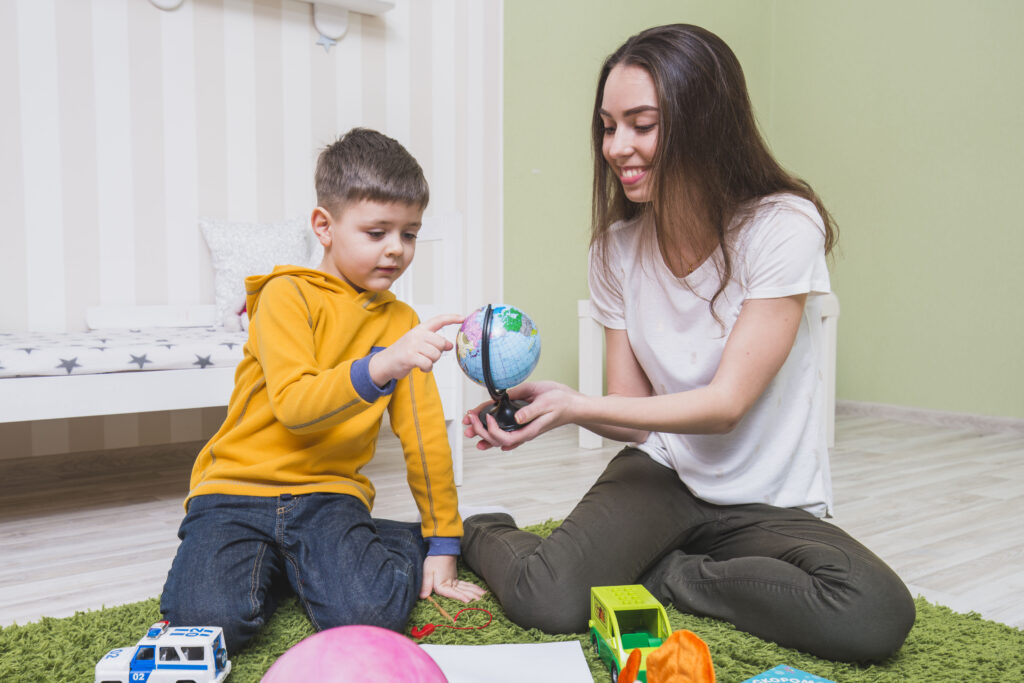Have you ever noticed your child getting frustrated while tying shoelaces, holding a pencil, or focusing on homework? You’re not alone — many parents face the same concern. The good news is, there’s real help available. Occupational Therapy bridges these everyday challenges and helps children build the skills they need to thrive in life.
Let’s explore how this powerful therapy helps children reach their full potential — step by step.
What is Occupational Therapy for Children?
In simple terms, Occupational Therapy (OT) helps kids become more independent and confident in their daily lives.
It focuses on improving the way children think, move, play, and interact with the world. Whether it’s learning how to button a shirt, hold a spoon, or manage big emotions — OT turns challenges into victories.
Pediatric occupational therapists work on areas like:
- Physical coordination
- Cognitive development
- Sensory processing
- Emotional and social growth
Think of them as life coaches for kids — helping little hands and big hearts work together better every day.
Common Challenges Children Face
Every child develops at their own pace, but sometimes they might struggle in areas that affect daily living. Some signs your child might benefit from OT include:
- Difficulty with fine motor skills, like writing or using scissors
- Trouble with sensory processing — too sensitive to noise, touch, or movement
- Poor focus or attention in class
- Challenges in self-care tasks like dressing or feeding
- Emotional ups and downs, or difficulty adapting to change
If any of these sound familiar, Occupational Therapy could be the gentle support your child needs.
Key Areas Where Occupational Therapy Helps Children
a. Improving Fine and Gross Motor Skills
OT helps children strengthen their muscles and coordination. From catching a ball to writing neatly — small improvements here can make a huge difference in confidence.
b. Enhancing Sensory Processing
Some kids may overreact to certain sounds or textures. OT uses fun sensory activities like playing with textured materials or swinging to help regulate these responses.
c. Boosting Cognitive and Attention Skills
Through puzzles, games, and memory tasks, therapists help kids improve concentration and problem-solving — without it feeling like work!
d. Building Social and Emotional Skills
Role-playing games, storytelling, and communication exercises help children understand feelings, make friends, and express themselves better.
e. Promoting Independence in Daily Tasks
Whether it’s brushing teeth, zipping up a jacket, or packing a school bag, OT gives children the skills and confidence to handle life independently.
How Occupational Therapy Sessions Work
A session at Openminds Center feels more like playtime than therapy!
Here’s what usually happens:
- Assessment: The therapist observes the child’s strengths and challenges.
- Goal setting: Together with parents, realistic goals are defined.
- Play-based therapy: Activities are designed around what the child enjoys — painting, playing, building, or role-play.
- Collaboration: Therapists, parents, and teachers work together to support consistent progress.
Each session is fun, engaging, and personalized — because no two children are the same.
Benefits of Occupational Therapy for Children
When children feel capable, they shine. OT brings a range of benefits, such as:
- Improved focus and academic performance
- Stronger social connections and teamwork skills
- Greater emotional balance and resilience
- Independence in daily life activities
- Boosted self-confidence and self-esteem
These small wins build up to create a confident, happy child ready to take on the world.
How Parents Can Support Occupational Therapy at Home
You play a huge role in your child’s progress! Here’s how you can help:
- Create a sensory-friendly corner with calming lights or textures.
- Practice recommended activities — make it fun, not a chore.
- Encourage independence — let them try before you help.
- Communicate regularly with the therapist for updates.
Small, consistent efforts at home can multiply the benefits of therapy.
When Should Parents Consider Occupational Therapy?
If you’ve ever asked yourself, “Is this just a phase, or does my child need extra help?” — it’s worth seeking an evaluation.
Early intervention is key. The sooner therapy begins, the easier it is to guide your child toward steady growth and independence.
Conclusion
Every child deserves the chance to shine — to feel confident, capable, and proud of what they can do. Occupational Therapy isn’t just about skills; it’s about empowering children to live fuller, happier lives.
At Openminds Center, our experienced occupational therapists are here to help your child reach their full potential — one joyful step at a time.
Contact our Occupational Therapists today to start your child’s journey toward confidence and independence!



